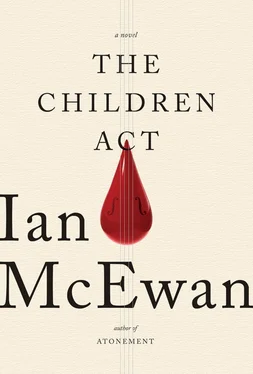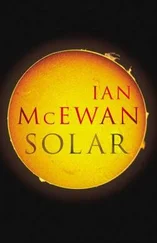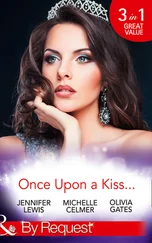Fiona murmured, “He said that?”
“It would fill our church with love.”
She summed up for him. “So Satan comes to beat you with his hammer, and without meaning to he flattens your soul into a sheet of gold that reflects God’s love on everyone and for this you’re saved and it doesn’t matter so much that you’re dead.”
“My Lady, you’ve got it exactly,” the boy almost shouted in his excitement. Then he had to stop to recover his breath again. “I don’t think the nurses understood it, except for Donna, the one who was in here just now. Mr. Crosby’s going to try and get it published in The Watchtower .”
“That would be marvelous. You may have a future as a poet.”
He saw through this and smiled.
“What do your parents think of your poems?”
“My mum loves them, my dad thinks they’re okay but they use up the strength I need to get better.” He rolled onto his side again to face her. “But what does My Lady think? It’s called ‘The Hammer.’”
He had such a hunger in his look, such longing for her approval, that she hesitated. Then she said, “I think it shows a touch, a very small touch, mind, of real poetic genius.”
He continued to gaze at her, expression unchanged, wanting more. She had thought she knew what she was doing, but just then her mind emptied. She didn’t want to disappoint him and she was not used to talking about poetry.
He said, “What makes you say that?”
She didn’t know, not immediately. She would have appreciated Donna returning to bustle around the machines and her patient, while she herself went to the unopenable window and looked out across Wandsworth Common and decided what to say. But the nurse was not due for another fifteen minutes. Fiona hoped that by starting to speak she would discover what she thought. It was like being at school. Back then she had mostly got away with it.
“The shape, the form of it, and those two short lines balancing things out, you’re low, then you’re saved, the second overcoming the first, I liked that. And I liked the blacksmith’s strokes…”
“Long and slow.”
“Mm. Long and slow is good. And it’s very condensed, the way some of the best short poems are.” She felt some confidence returning. “I suppose it’s telling us that out of adversity, out of a terrible time, something good can come. Isn’t that right?”
“Yes.”
“And I don’t think you have to believe in God to understand or like this poem.”
He thought for a moment and said, “I think you do.”
She said, “Do you think you have to suffer to be a good poet?”
“I think all great poets must suffer.”
“I see.”
By pretending to adjust her sleeve she exposed her wristwatch and glanced down at it on her lap without seeming to. She must soon return to the waiting court and give her judgment.
But he had seen her. “Don’t go yet,” he said in a whisper. “Wait till my supper comes.”
“All right. Adam, tell me, what do your parents think?”
“My mum is better at dealing with it. She accepts things, you know? Submission to God. And she’s very practical, making all the arrangements, talking to the doctors, getting me this room, larger than the others, finding me a violin. But my dad is sort of tearing himself apart. He’s used to being in charge of earthmovers and stuff and making things work.”
“And refusing a transfusion?”
“What about it?”
“What do your parents say to you?”
“There isn’t much to say. We know what’s right.”
As he said this, looking at her directly, with no particular challenge in his voice, she believed him completely; he and his parents, the congregation and the elders knew what was right for them. She felt unpleasantly light-headed, emptied out, all meaning gone. The blasphemous notion came to her that it didn’t much matter either way whether the boy lived or died. Everything would be much the same. Profound sorrow, bitter regret perhaps, fond memories, then life would plunge on and all three would mean less and less as those who loved him aged and died, until they meant nothing at all. Religions, moral systems, her own included, were like peaks in a dense mountain range seen from a great distance, none obviously higher, more important, truer than another. What was to judge?
She shook her head to dispel the thought. Waiting in reserve was the question she had been about to ask before Donna came in. As soon as she started to pose it, she felt better.
“Your father explained some of the religious arguments, but I want to hear it in your own words. Why exactly won’t you have a blood transfusion?”
“Because it’s wrong.”
“Go on.”
“And God has told us it’s wrong.”
“Why is it wrong?”
“Why is anything wrong? Because we know it. Torture, murder, lying, stealing. Even if we get good information out of bad people by torturing them, we know it’s wrong. We know it because God has instructed us. Even if—”
“Is transfusion the same as torture?”
Marina stirred in her corner. Adam, speaking in breathy snatches, set out on his exposition. Transfusion and torture were only similar in that they were both wrong. We knew it in our hearts. He quoted Leviticus and Acts, he talked about blood as the essence, about the literal word of God, about pollution, he held forth like a clever sixth-former, the star pupil in the school debate. His violet-black eyes shone as his own words moved him. Fiona recognized certain phrases from the father. But Adam spoke them like the discoverer of elementary facts, the formulator of doctrine rather than its recipient. It was a sermon she was hearing, faithfully and passionately reproduced. He presented himself as a spokesman for his sect when he said that he and his congregation just wanted to be left alone to live by what they knew to be self-evident truths.
Fiona was attentive, she held the boy’s gaze, nodded occasionally, and when at last there was a natural pause, she stood and said, “Just to be clear, Adam. You do realize that it’s for me alone to decide what’s in your best interests. If I were to rule that the hospital may legally transfuse you against your wishes, what will you think?”
He was sitting up, breathing hard, and seemed to sag a little at the question, but he smiled. “I’d think My Lady was an interfering busybody.”
It was such an unexpected change of register, so absurdly understated, and her own surprise so obvious to him, that they both began to laugh. Marina, just then gathering up her handbag and notebook, seemed puzzled.
Fiona looked at her watch, openly this time. She said, “I think you’ve made it pretty clear that you know your own mind, as much as any of us ever can.”
He said with proper solemnity, “Thank you. I’ll tell my parents tonight. But don’t go. My supper isn’t here yet. What about another poem?”
“Adam, I have to get back to court.” But she was keen all the same to turn the conversation away from his condition. She saw the bow lying on his bed, partly in shadow.
“Quickly, before I go, show me your violin.”
The case was on the floor by a locker, under the bed. She lifted it up and placed it on his lap.
“It’s only a school violin for beginners.” But he brought it out with extreme care and showed it to her and together they admired the contoured nut-brown wood edged with black and the delicate scrolls.
She laid her hand on the lacquered surface and he put his close to hers. She said, “They’re beautiful instruments. I always think there’s something so human about the shape.”
He was reaching for his beginners’ violin tutor from the locker. She hadn’t intended for him to play, but she couldn’t stop him. His illness, his innocent eagerness made him impregnable.
Читать дальше












